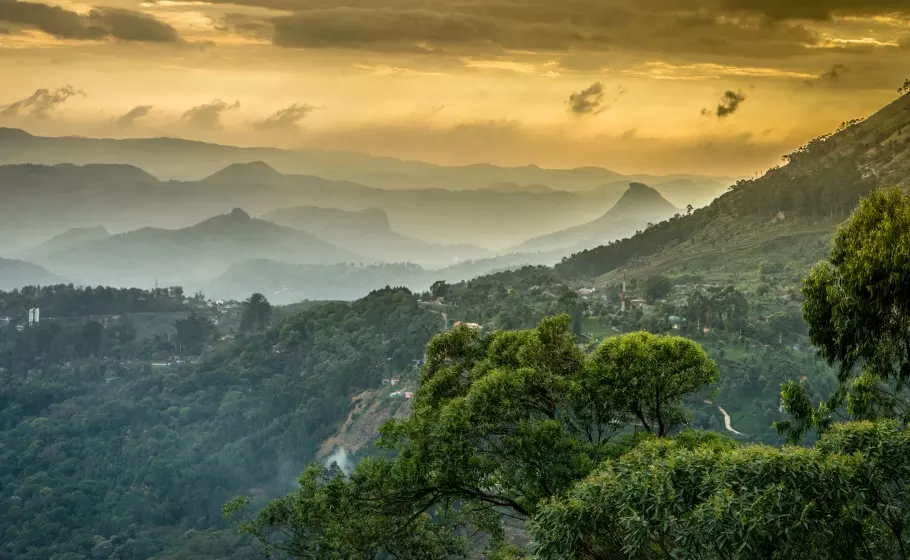
Green warriors up the ante to save Western Ghats; Inner Line Permit among demands
Ecological charter Parisarakkagi Naavu grafts set of demands, presents it to Karnataka government

The Wayanad disaster and the continuous landslides in Karnataka have not only put the spotlight back on the 2011 Madhav Gadgil report, but environmentalists are now seeking stricter measures such as imposing an Inner Line Permit (ILP) for the ecologically fragile Western Ghats, like in the North East.
The “Parisarakkagi Naavu” (We are for Environment), an ecological charter, has now drafted a set of demands and presented it to the state government.
Need for awareness
The Parisarakkagi Naavu, founded in January, includes environment enthusiasts from all across Karnataka. Of the six states that the Western Ghats pass through, Karnataka has the largest chunk of the ecosystem. The others are Kerala, Tamil Nadu, Maharashtra, Goa, and Gujarat.
Understanding the need to raise the awareness that Karnataka must possess to save this ecological treasure house and prevent further tragedy, the charter has now founded units in all districts, bringing together individuals dedicated to environmental conservation and sustainable practices.
Gadgil guides group
Incidentally, the group is being guided by Madhav Gadgil himself, the architect of the 2011 report and an ecological scientist from the Indian Institute of Science (IISc), Bengaluru. Other members include noted environmental scientist TV Ramachandra.
The group is seeking quick action to safeguard both nature as well as human lives.
Need for ILP
Noted environmentalist, Akhilesh Chippalli, who is part of the group, has proposed an ILP to curb exploitation of the Western Ghats. Chippalli told The Federal that an ILP will help regulate developmental activities along the Ghats that are spread across 10 districts of Karnataka.
The ILP, something similar to what is followed in India’s North East, is the need of the hour, he said.
“Migrants have occupied the Western Ghats region in large numbers, leading to rampant real estate activities and an alarming reduction in forest cover. Hence, the state governments must bring in an ILP model all along the Ghats to regulate such commercial activities,” Chippalli explained.
Message for locals
Another noted environmentalist, writer, and journalist Nagesh Hegde, who is also a member of the group, spoke to The Federal on the recommendation he made to the government.
“I have suggested that a five-member panel — comprising a government representative, an ecologist, a representative of a political party, an environmental activist, and a journalist — be constituted with the purpose of creating a simple comprehensive summary of the Gadgil report in Kannada.”
The committee will bring out a handbook in simple and understandable language and this should be circulated in all taluks that come under the Western Ghats.
Decisions that cost states dear
“In Karnataka, successive governments have ignored the recommendations of the Gadgil committee and those of its successor, K Kasturirangan committee, which diluted many of the recommendations of the Gadgil panel,” Hegde said.
Gadgil had in his 2011 report recommended covering 75 per cent of the 1,29,037 sq km mountain range as an ecologically sensitive area (ESAs). The six Western Ghat states have been rejecting the ESA drafts proposals for 10 years now, and the terms have been getting diluted over the years.
Gadgil defends report
On Saturday (August 10), the Parisarakkagi Naavu held a conclave in Bengaluru to discuss the issue and chalk out a future course of action. The panellists voiced concern that the deadly Wayanad landslides, which claimed over 200 lives, was a stark reminder of the inaction of Western Ghats states.
Speaking at the conclave, Gadgil regretted that a wrong impression had been created that the recommendations of his report were not implementable. He alleged that the report had been dismissed without even been studied.
Tourism to blame
“The disasters in Western Ghats can be avoided if the recommendations of this report are implemented,” he said.
“In the name of tourism, a lot of activities and construction of resorts have taken place in the sensitive and extremely sensitive regions of the Western Ghats, which are causing landslides,” he said. “Such activities should be prohibited.”
According to him, most landslides affect the poor most adversely. Even in Kerala’s Wayanad, most of those who died had low-paying jobs.
Continuing landslides
Even as Wayanad drew the most attention because of the extent of devastation, landslides have also continued to batter Karnataka this monsoon.
In the latest incidents, a landslide occurred on the Bengaluru-Mangaluru line on July 26, between Yedakumeri and Kadagaravalli section of the Mysuru division. It led to axing of train services for more than 10 days to facilitate track restoration.
Within just two days of restoration, another landslide has caused disruptions, affecting services between Bengaluru and the coastal districts of Karnataka again.

